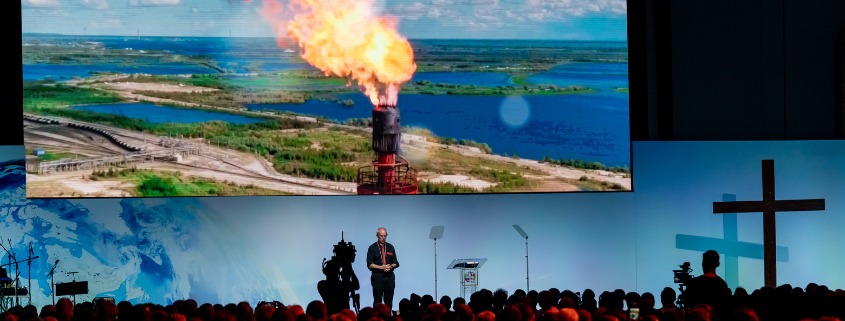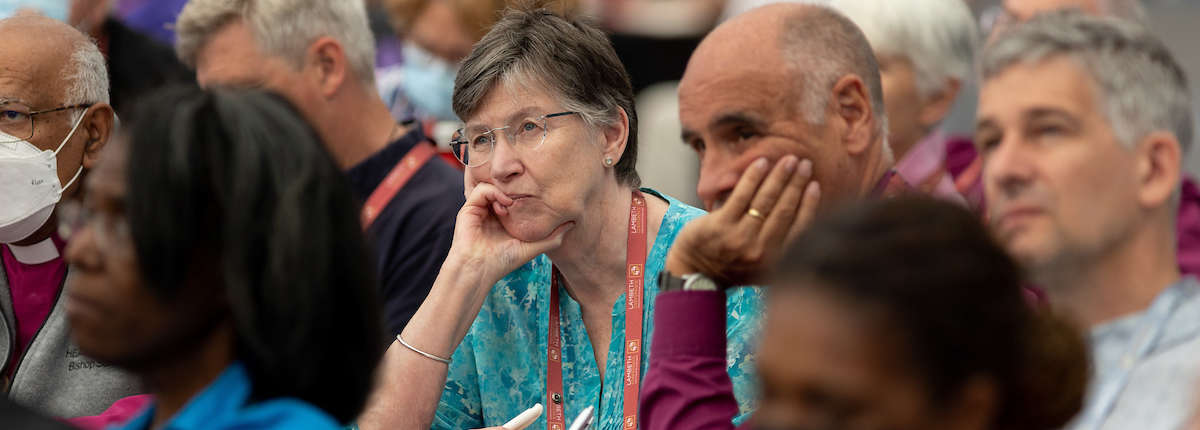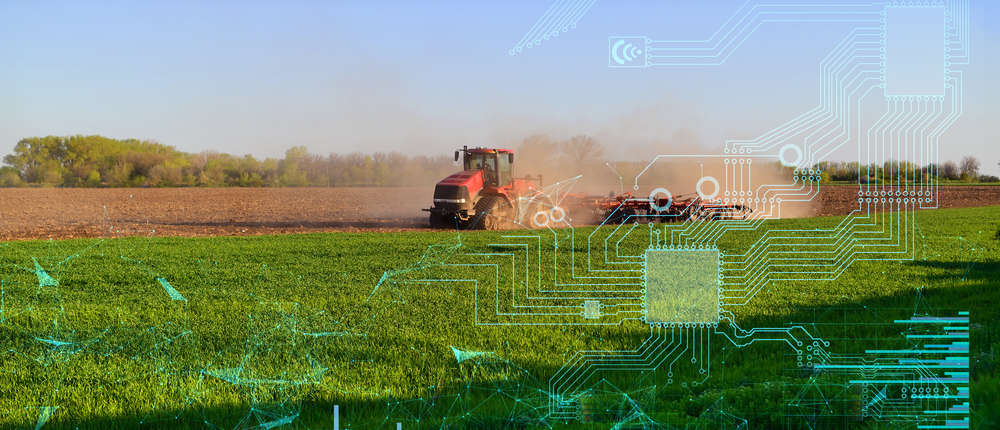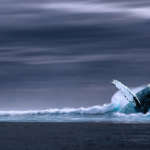Science and Faith and the Lambeth Conference: a summary

Science and Faith was a key thread of the Lambeth Conference held in Canterbury from 26 July to 7 August.
There were of course many other important threads, reflected in my letter to the Diocese of Oxford. I record here the key themes of the science thread for the benefit of the Science Commission and our Provincial Lead Bishops and also scientists and Church leaders across the Anglican Communion.
Around 650 Anglican bishops from 165 countries gathered for the conference together with several hundred spouses and other guests and staff. The atmosphere throughout was warm and positive with many, many good and moving conversations.
The Anglican Communion Science Commission was launched through the conference. It’s my privilege to be Co-Chair of the Commission, together with Archbishop Thabo Makgoba, Primate of Southern Africa. Professor Andrew Briggs, who is a key member of the Commission, was also present through the two weekends of the conference.
Previous Lambeth Conferences have acknowledged the importance of science in relation to faith but, as far as I know, haven’t found a structure for encouraging and enabling the Communion’s relationship with science in the following years.
Archbishop Justin’s First Plenary Address
The Archbishop gave three plenary addresses through the conference, all worth reading in full on the main theme: God’s Church for God’s World.
The first address is focussed on the challenges facing the world through the metaphor of roaring lions (drawn from 1 Peter 5.8): science and technology; climate change; religious extremism; war and conflict; economic injustice and poverty; and culture. Science and technology is a lion that can and must be tamed for the common good of the world. Here are some extracts from this section:
“… the next 40 years are expected to see the greatest changes in science and technology in the shortest period that has ever happened in human history. In the biological and medical sciences, we are already seeing extraordinary advances in the treatment of diseases from cancer to malaria. The Covid-19 vaccine was developed in less than 18 months. 20 years ago it would have taken a decade. We already have more power in our phones than NASA had to send astronauts to the moon. Self-driving cars are already a reality.”
“With Artificial Intelligence, machines are already producing conversations that sound convincingly ‘human’. At what point do we say they are thinking for themselves and have a soul? Wars are now won and lost because of drones and autonomous weapons. Robotics is advancing rapidly. The list is endless. And these changes give humanity, the whole global population, two possible ways to go.
“First, led by churches that are engaged with science and technology we learn as the church, as God’s people and around the world, to give thanks to the Lord who gives us brains to think with and scientific advances to help change lives. In this pathway, this wonderful way, the benefits of knowledge are shared. The ethical questions are thought through. Skills in crop change are spread throughout the world so that countries affected by global warming can still feed their populations. Clean water is made available to countries suffering from drought, and diseases that cause so much suffering and death are eradicated. Drones and good surveillance are used to stop wars, stop bandits, stop poaching, and to warn of natural disasters.
“The second is the path of power and wealth. The rich gain the benefits of the new technologies and science, and they do as they choose. The poor are shut out of the gains and live as they can. The wealthy have choice, the poor suffer the consequences.
“That is why we are having a Call to support the creation of a fully funded global Communion network on Science and Technology. So that our schools – one of the greatest things we do is education – and universities will become centres in every country represented here tonight of the new knowledge, so we will be those in societies who are scientifically thoughtful, deeply Christian, profoundly worshipping and contributing well to ethical debate.
“A church that refuses to or is unable to engage in these areas, my dear sisters and brothers, will have nothing to say to a world whose future is being decided by changes of science and technology.”
Two Seminars
Professor Andrew Briggs, Bishop Emily Onyango, Dr Heather Payne and myself led an elective seminar for around 35 delegates on the first Saturday of the Conference focussed on the Lambeth Call on Science and Faith and the new Commission. We looked at the key areas of cosmology, learning from the church response to COVID, agriculture, and gender-based violence. We asked the delegates what their priorities would be for the Commission as context is key. When we mapped these onto the five marks of mission, the highest number were in the area of the second mark: teaching, nurturing, and baptising new believers.
Our second seminar a week later was led by members of the ECLAS team. ECLAS stands for Equipping Christian Leaders in an Age of Science. The team presented the ways in which ECLAS has worked in conferences for senior church leaders; funding scientists in congregations and new work in seminaries and in primary research on church attitudes to the sciences. Again we listened carefully to the priorities of delegates which ranged from teaching conservation agriculture to ethical questions around technology to exploring the ways we know things.
An audio recording was made of both seminars and we will post resources here as they become available.
The Lambeth Call on Science and Faith
Ten Calls were drafted and presented to the Conference including the Call on Science and Faith. The full texts of the Calls are available from the Lambeth Conference. The Science and Faith Call can be found towards the end of the document.
Key paragraphs in the Call are as follows:
“As bishops we believe the perception of a rift between science and faith should be laid to rest in every part of our Anglican Communion over the coming critical decade, in order to fulfil our calling to be God’s Church for God’s world in this generation
“We the bishops assembled for the Lambeth Conference commit ourselves to welcome and enter into dialogue with science recognising within it God-given resources for the life of faith and to offer the wisdom of faith to its work.”
The Call invites every Province to appoint a Lead Bishop on Science. Over 20 have already done so, and we were able to gather the Provincial Lead Bishops and others later that evening for a deeply valuable face-to-face conversation and more listening about priorities. The Call invites every disciple to grow in their knowledge of science; every seminary to engage with science in the coming decade and every Province to develop its own dialogue between scientists and senior church leaders.
As Chair of the Drafting Group for this Call, I was able to offer a short introduction to the group discussion of the Call:
“The coming decades will see the greatest changes in science and technology ever seen in human history. Those changes will raise significant questions around justice, about ethics, about employment, about what it means to be human.
How are we to be God’s Church for God’s world in these critical decades? We need to be a Church which is confident in the sciences. We need to grow a generation of ethical Christian scientists across different disciplines.
For six years I have worked in the areas of artificial intelligence and climate change through my work in the House of Lords and in the UK Government’s Centre for Data Ethics and Innovation.
As Co-Chair of the Anglican Communion Science Commission, it is my privilege to introduce the drafting group. The Call has been developed by the Commission with particular input from Professor Andrew Briggs, Dr Heather Payne, Archbishop Thabo – my co chair, Bishop Emily Onyango, Bishop Renta Rishihara and Canon Stephen Spencer.
We are just beginning and we have much to learn. As you consider the call this morning, imagine these questions which may come to you in the coming years, which the Science Commission will help you answer:
- Bishop, prominent families in my parish are refusing the COVID vaccine. What do I say?
- I have been asked to plant GM crops. What should I do?
- Our young people are self harming and learning this from social media. What can we do to prevent this?
- The call centre in my parish is making two thirds of its staff redundant. Where will they find work?
- Bishop, our young people want to train as scientists – how can we help them?
- Bishop, our local school is saying that the Bible is incompatible with science. What do I say?
For too long there has been a rift between the Church and the sciences. This call helps us to say that this perception of a rift should be laid to rest in every part of the Anglican Communion over the coming decade.
We would love your feedback on the specifics of the call. We would also love to have evidence of your support through the emails from the groups. Please do tell us that you support the call. Please do feed back your priorities for our work – perhaps grouped according to the five marks of mission in 4.1.”
The Call was very well received and there was a great deal of energy around the tables. Every group was asked to summarise its discussion by email, and we’ve not yet received that feedback, but Andrew and I had many really positive conversations across the final two days of the Conference. There was a sense from these that the Call and the Commission is timely and positive across the Anglican Communion.

Archbishop Justin’s Second and Third Keynotes
Archbishop Justin returned to the theme of science and faith in his second and third Keynote Addresses to the conference. In the second he draws attention again to the Call and Commission:
“The Communion therefore must pray, must witness, it must have those who are wise in the world. We’ll have the Call on Science and Technology tomorrow. How can science serve the Kingdom, rather than the kingdoms of this world, unless we have those who can argue the claims of God based on the gifts God has given us in science and technology?”
In the third, the Archbishop stresses the key importance of reason in our interpretation of Scripture, drawing on Richard Hooker, and therefore the vital importance of engaging with the sciences as we reflect on scripture and in our teaching in schools, universities, and churches:
“Teaching not simply saying what the text says. It is a prophetic task of reflecting on the world around us in the light of the scriptures and the life of Christ. This is why things like the Anglican Science and Technology Network are so important; why the Anglican Health Network is so important. Because those are about engagement with the world and bringing the scriptures and the world into relationship in which the scriptures help us understand what is happening in the world. It is not about retreating into a huddle.”
The third Keynote ends with a powerful vision of the Kingdom of God:
“We have a vision that is a picture of the Kingdom. Not greater darkness but spreading light. Not science and technology bankrupt and captured by the powerful but shared and developed for the Common Good for all human beings. Not masses of people vainly seeking shelter from climate disaster, but generosity, hospitality, effective tackling of the climate emergency led by those who see our world as God’s gift, and who take seriously the reconciliation of all things to their creator.”
There were of course, other tributaries to this river of science flowing through the Conference, most notably in the Plenary and the Call on the Environment. Overall there was a sense of the Call being timely and heeded and of a Communion which wants to take this priority forward in different ways in our common life.
What next?
The Science Commission has already met twice online and has two further meetings for the autumn to reflect together on the Lambeth Conference and the emerging priorities for our work. We will be in listening mode for much of the next year.
We will be gathering the Provincial Lead Bishops together for two preliminary virtual meetings in September to build on the relationships established at the Lambeth Conference. We will be continuing to gather resources through a bid to a major global trust so that we can engage a small team in Oxford and in a leading University in Africa to take forward the Call and build capacity across the Communion.



